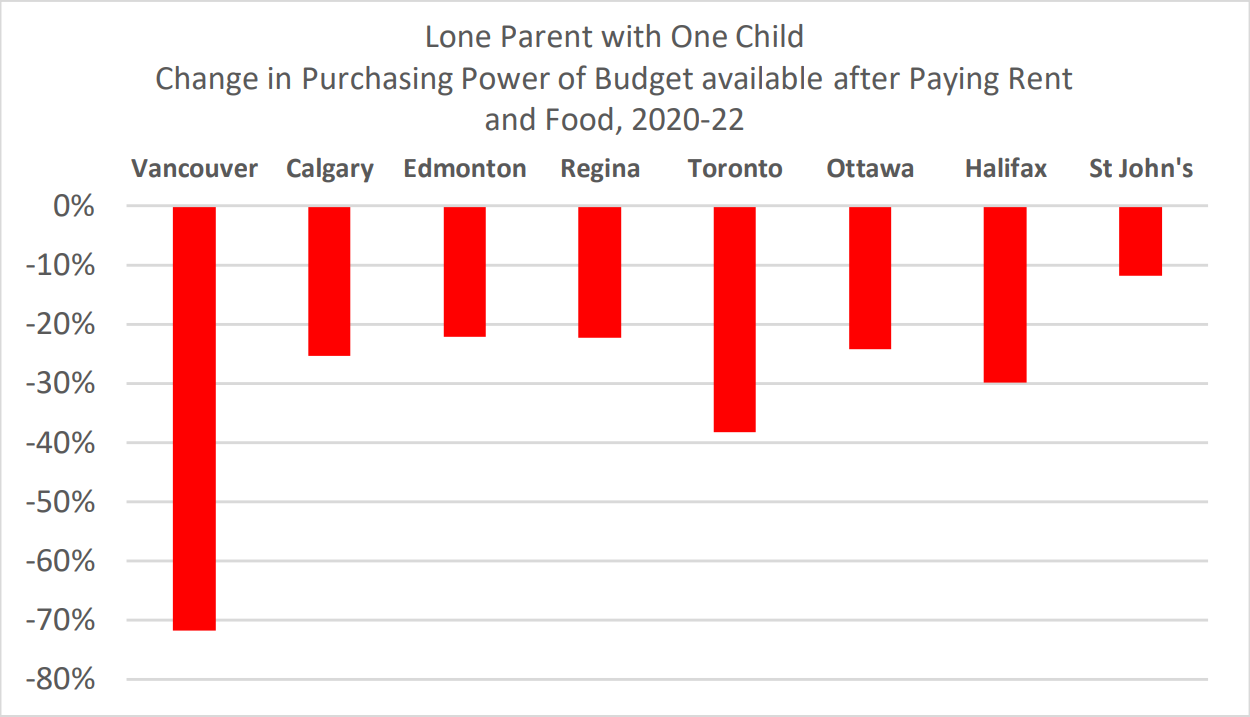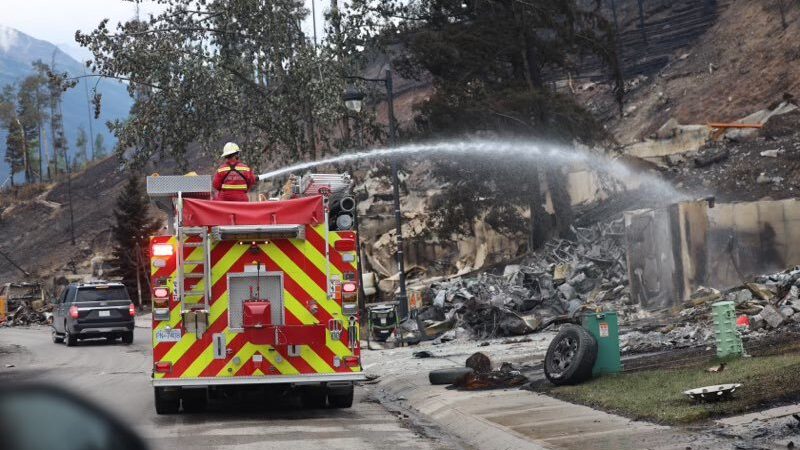‘They could do more’: Report suggests Alberta needs more income supports

Posted December 7, 2022 9:19 am.
Alberta doesn’t typically index social assistance programs for inflation, and according to a new report, that needs to change.
Ron Kneebone, professor of economics at the University of Calgary’s School of Public Policy, says the way social assistance currently works in the province, leaves people struggling more than they should.
“As inflation goes up, the purchasing power of social assistance income goes down,” said Kneebone, one of the authors of the report. “In Alberta there have been long periods of time – eight, 10 years – without any adjustment for inflation. During those periods there have been big losses in purchasing income. And that just means people are not able to afford rent, they’re not able to afford food, they’re not able to afford anything.”
According to the report, a single parent with one child has about 25 per cent less purchasing power in their budget after paying for rent and food compared to 2020.

Lone parent with one child change in purchasing power of budget available after paying rent and food, 2020-22. (University of Calgary School of Public Policy)
Under the New Democratic Party (NDP) in 2019, the Alberta government began indexing social assistance, a policy that was walked back by the United Conservative Party (UCP) when it took power in April of the same year.
Last month, Premier Danielle Smith announced the province would start indexing social assistance once again.
“I applaud Premier Smith for re-indexing [social assistance], this is the right thing to do,” Kneebone said. “But, it’s not all that needs to be done, because one of the things she did – and again, this is partially good – she’s going to re-index moving ahead, so in the future, inflation won’t be reducing people’s incomes. She also increased it by six per cent, to make up for the inflation during the past year.”
However Kneebone suggests the province doesn’t go far enough in ensuring those in need are substantially supported financially. He says a six per cent increase to social assistance isn’t enough to cover the three years that the province went without indexation.
“And the second thing is, she’s indexing – as all governments have done – to the consumer price index (CPI), which is a terrible measure of the cost of living by people with low income,” he explained. “And so she really needs to think how she should be indexing social assistance income, using the CPI is not a very good way of doing it.”
READ MORE:
-
Vote buying? AISH increases historically align with lead-up to provincial elections
-
Bank of Canada raises key interest rate by half percentage point
-
First half of 2023 will see Canadian food prices jump: report
Kneebone says the government needs to set a high enough level of support for social assistance income as well as protect that level from future inflation.
The way it is now, rent and food take up most, if not all, of people’s income, leaving nothing for clothing, utility bills, dental bills, and more.
Kneebone suggests the province should be considering how rent and general cost of living increases affect those with low income to properly set support levels.
“That’s the problem with using the consumer price index. The consumer price index assumes that you spend only about 30 per cent of your income on rent. But if you’re on social assistance, you’re actually spending about 70 or 80 per cent of your income on rent,” he said.
Kneebone adds Alberta sometimes gets a bad rap about supporting people with low income, however the Assured Income for the Severely Handicapped (AISH) program is “the very best” and “most generous” program in Canada.
“It’s not like Alberta is always mistreating people with low income, they don’t always – they could certainly do a better job. Deciding to index is a big step forward, and again, I congratulate them for it. They could do more, so could every other province, except Quebec, which is doing it correctly,” he said.
–With files from Logan Stein








